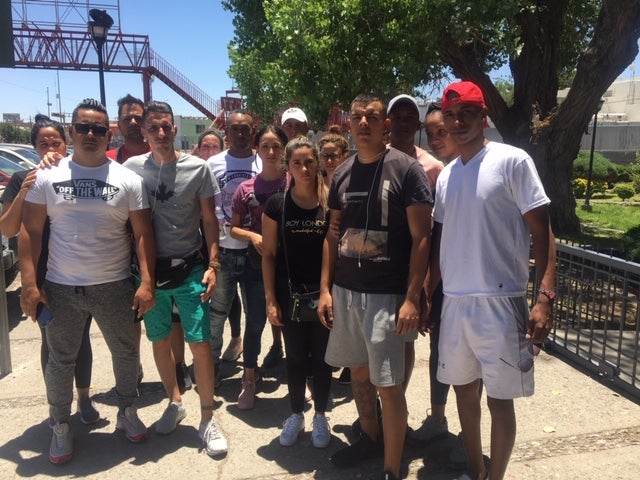
 Cubanet, Miriam Celaya, West Palm Beach, 16 July 2019 — Just five years ago, when the governments of the United States and Cuba reestablished diplomatic relations after 18 months of secret talks, there were ominous voices that predicted the end of the privileges for Cuban immigrants to the northern country.
Cubanet, Miriam Celaya, West Palm Beach, 16 July 2019 — Just five years ago, when the governments of the United States and Cuba reestablished diplomatic relations after 18 months of secret talks, there were ominous voices that predicted the end of the privileges for Cuban immigrants to the northern country.
According to this gloomy forecast, an accelerated increase in the number of nationals leaving the Island, both by sea and by land, began to take place. The continental exodus has not stopped even with the end of the policy of “wet foot/dry foot”, when – rumors turning into reality – the then outgoing president, Barack Obama, announced its immediate repeal on 12 January 2017.
Meanwhile, the incoming president not only did not restore that migratory privilege, but rather reinforced the obstacles. In fact, during the current administration, there was a cessation of consular functions in the US embassy in Havana, which makes it difficult to carry out the corresponding procedures. Added to this is the significant decrease in the number of visas granted in the last three years, the recent elimination of the multi-entry visa, valid for five years, and the marked slowing down of family reunification processes.
But the problems do not stop there. In recent times the avalanche of asylum seekers in the US southern border, mostly from Central America, exceeds the response capacities of the US authorities and prevents both the processing of the requests and the assimilation and adequate attention at the border posts destined to the temporary reception of migrants.
Thus, in an attempt to overcome the crisis, this Monday, July 15th, the official US Department of Homeland Security website has published a new regulation for asylum seekers, which will go into effect on Tuesday, the 16th of this month. The new regulation does not make a distinction among national origins in its text and, consequently, it could potentially also apply to Cuban immigrants.
“A foreigner who enters or intends to enter the US through the southern border without having sought protection in a third country outside of their countries of citizenship, national origin or of his last customary legal residence, who has been en route to the United States, is not suitable for asylum,” reads the rule that casts another shadow of uncertainty on the future of island migrants, especially those who cannot justify a “legitimate fear of being persecuted” or who generally avoid seeking protection in transit countries , either for fear of being deported to Cuba or to avoid the usual extortion from a large number of corrupt officials.
Meanwhile, the Trump administration continues to weave containment strategies against illegal migration and seek agreements with the countries of origin or transit in order to contain the disorderly exodus to the US border. Nor is it known to what extent the Cuban-American exile community can influence (or be willing to do so) in favor of the current Cuban migration. There are sectors that – understandably – distance themselves from the new waves of migrants. At the border, these sectors declare themselves to be “politically persecuted”, and once they get the coveted green card, they return to visit the Island as economic emigrants.
It is early for the lapidary assertions, but all signs tend to spread alarm among the most suspicious hopefuls to reach the American dream, awakening fears about the eventual disappearance of the Cuban Adjustment Act, in force since 1966, the last remaining prerogative for Cubans that allows them to legalize their immigration status and apply for the permanent resident card one year after their entry into the United States.
For the time being, far from slowing down the migratory flow from the Island, each new obstacle seems rather an incentive to escape as soon as possible to any point in the hemisphere, preferably in the northern direction. Because, what is unquestionable is that the only true and legitimate fear of the tens of thousands of Cubans who emigrate each year, is to have to live and die in a country where they feel condemned not to have present or future.
(Miriam Celaya, resident in Cuba, is visiting the United States)
Translated by Norma Whiting
